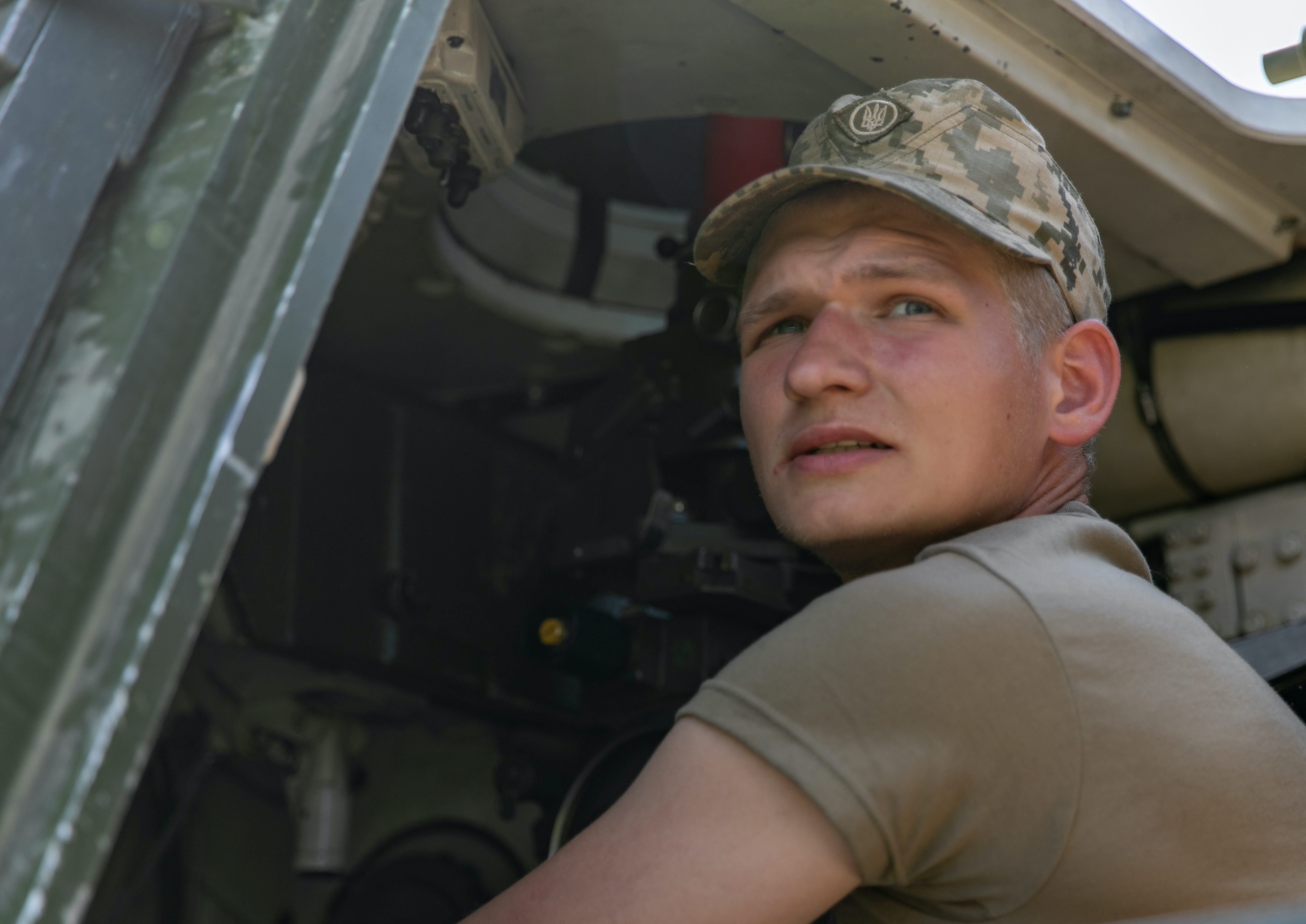
(U.S. Army photo by Sgt. Spencer Rhodes, 53rd Infantry Brigade Combat Team)
Reclaiming Crimea would be “an exceptionally difficult fight” because Russian President Vladimir Putin attaches so much importance to it, former Defense Secretary Robert Gates said during an online forum hosted by The Washington Post. Moscow annexed Crimea in 2014, saying it was protecting the base and defending its citizens living there.
Gates said he believes Ukraine could take back control of the Donbas region. It has seen more than eight years of fighting after the Kremlin openly backed separatists there with men, equipment and financial support as it was illegally annexing Crimea.
The critical issue for Ukraine is how quickly the United States and NATO allies can get equipment like tanks and other armored vehicles into the country, Gates said.
“We ought to be airlifting some of that equipment to Poland now,” he said.
This includes the American Abrams M-1A1 tanks and German Leopard tanks, armored personnel carriers and Mine-Resistant Ambush Protected [MRAP] vehicles, Gates said.
Russia is gauging the speed at which it can draft an additional 120,000 men, which would bring the number of new troops that need training and equipment to bolster defenses and launch a counteroffensive to 500,000. He said a new Russian push could begin as early as the anniversary of the invasion, Feb. 24.
Gates questioned whether Ukraine needs F-16 fighters since the Russians have not been able to gain air superiority even in areas they control in the eastern part of the country. Ukrainian “air defenses may make the need for F-16s moot,” he said.
He added that allies will likely keep pushing the Biden administration to give them the go-ahead to ship their American-built F-16s and begin training pilots and maintenance crews on operations.
The waves of drone and missile strikes on Ukrainian cities and infrastructure have not broken the Ukrainians’ will to continue to fight, despite attacks that aim to terrorize civilians, Gates said.
“The most important thing to get to them now is armor and getting it there quickly,” he said.
Gates was wary about providing Ukrainian armed forces with longer range weapons that could strike targets across the Russian border. He stressed the need for an agreement between Kyiv and Washington on targets, such as logistical depots and rail hubs, and locations. It’s an option “worth considering but with very real limits imposed” before receiving approval, he said.
Gates, a former CIA analyst, said he believes Putin is “a rational decision-maker” who was ill-informed and isolated at the start of the war due to COVID-19 restrictions. He dismissed the idea that replacing Putin would bring an end to the war more quickly by pointing out “the advisers to him are more hawkish than he is.” He mentioned Yevgeny Prigozhin, the head of the Wagner Group of mercenaries, as one of those closest to Putin, but also a critic of how Russia is fighting the war.
The latest Russian commander in Ukraine, Valery Gerasimov, faces an uphill struggle, Gates said. He noted the Russian Army’s “lack of battle experience” that it still relies on a Soviet model of slow decision-making that’s further handicapped by a top-heavy leadership.
The army still fights with “total disregard [for] the number of casualties you take” to overcome an enemy by mass. The tactic worked in World War II, but its viability against a Ukrainian army that has had eight years of NATO and American training on building leadership into lower ranks and flexibility in combat is questionable, Gates said. .
The war has left Russia “significantly weakened for a long time,” he said. Gates cited the departure of hundreds of thousands of Russian men, many with technology skills, when Russia announced the first draft in the summer. At the same time as sanctions took effect, “there was the withdrawal of Western companies [who are] not coming back anytime soon,” affecting Russians’ standards of living and expectations, he said.
Gates expects it will take a generation for Russia to regain that technological and economic position.
But “the last thing we need is Russia fragmenting” into a collapse similar to the Soviet Union’s in the early 1990s and losing control of its nuclear weapons, he said.





